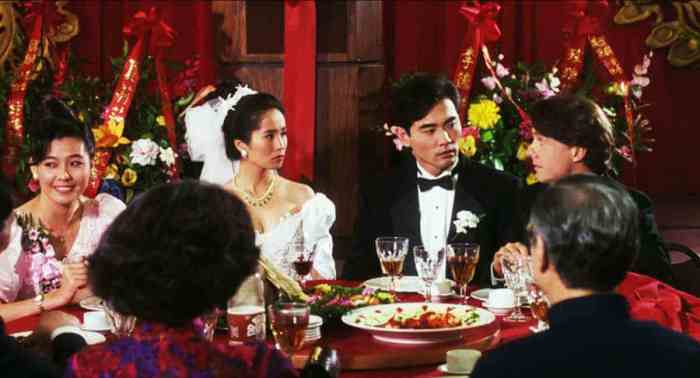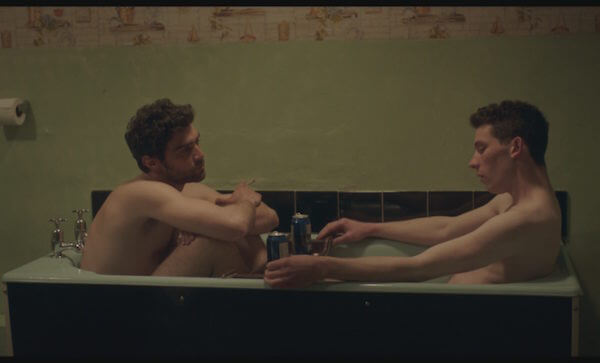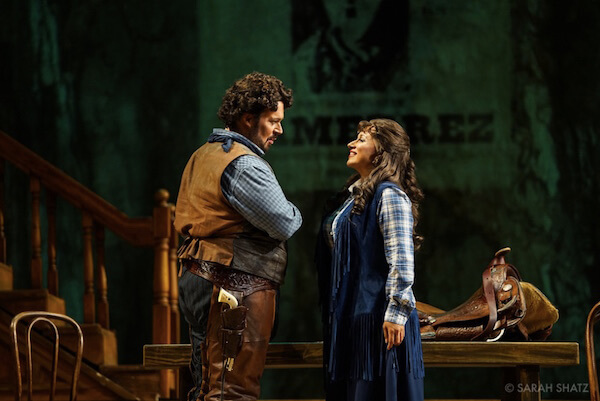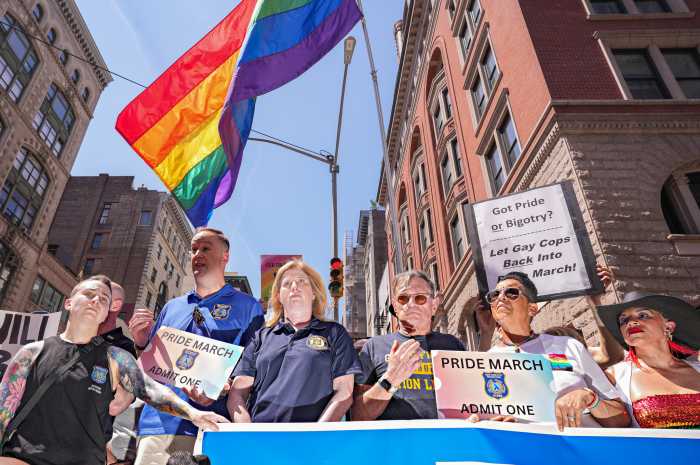Glenn Seven Allen and Daniel Okulitch in Charles Wuorinen’s “Brokeback Mountain.” | SARAH SHATZ/ NEW YORK CITY OPERA
Charles Wuorinen’s operatic “Brokeback Mountain,” with a libretto by Annie Proulx herself, originally presented in Madrid in 2014, finally made it to New York City Opera — and North America — as part of the company’s welcome June slot dedicated to operas with LBGTQ content. (NYCO also marches in the Pride Parade.) The spiky, 12-tone cinematic score tailors itself more to the original story’s grit and sinew than to Ang Lee’s romantic, swoonily beautiful film. Those who came seeking melody or post-Puccinian rapture found none.
Having grown up during Pierre Boulez’s heyday at the New York Philharmonic, I think I process serial music differently from many fellow opera fans. I respected this thorny score on its own terms, though ultimately the work founders on an excess of exposition in the libretto’s short scenes. Plus, however atmospheric and evocative of angst the orchestral sounds, the vocal writing — even with most of the words comprehensibly set — adds little if anything to our understanding of or feeling for the characters.
Jacopo Spirei’s post-Madrid production came from Salzburg’s Landestheater. The direction passed muster, no more; some tame petting was about as suggestive as things got, perhaps reflecting the staid ethos of Salzburg. Eva Musil’s set was minimal, just adequate to set the scenes; Susan Roth’s nuanced lighting proved more help in this regard, though Spirei made little use of the rear projection screen.
Charles Wuorinen’s challenging “Brokeback” score fights jagged libretto and vocal writing
Bass-baritone Daniel Okulitch created Ennis in Madrid in 2014. Initially looking too old for the 1963 Ennis, he gave a fine, eventually moving reading of a character whose music gets more complex and resonant as he matures into — sadly — “too late love.” Versatile tenor Glenn Seven Allen was a sexy, lively Jack, alert to every nuance of the drama; in operatic terms he’s a spieltenor with good access to head voice.
Heather Buck, Daniel Okulitch, and Glenn Seven Allen. | SARAH SHATZ/ NEW YORK CITY OPERA
Heather Buck — the original Alma, Ennis’ wife — has created and interpreted much contemporary literature very well, including the name part in Wuorinen’s 2004 “Haroun and the Sea of Stories.” She still looks remarkably youthful on stage and made the character quite affecting (it’s hard to feel for any one else in the piece) but wasn’t in her usual astounding form in executing challenging intervals and throwing off staccato flights. Acting trenchantly, Hilary Ginther (Lureen, Jack’s wife) revealed an individual, beautiful mezzo. Good cameos came from Christopher Job (Aguirre, the foreman), Melissa Parks (Bartender), Sarah Heltzel (Saleswoman), Brian Kontes (Hogboy) and Jenni Bank (Mrs. Twist, Jack’s mother).
At June 2’s matinée, conductor Kazem Abdullah (in a welcome return to New York) and his 24 players — most notably pianist Thomas Bagwell and percussionists John Ostrowski and Eric Poland, whose valiant work largely punctuated the score — did a hard job well. The work’s major misstep is absolutely gratuitous choral work in the scene in which Ennis learns of Jack’s death (and must guess at its nature). The choral sound added nothing; the repetition of Ennis’ phrases told us nothing either. If the opera has future productions, the creators might ponder cutting that as a useful economy.
I’m glad to have seen this project even with its insufficiencies. But how about NYCO scheduling a melodic LGBTQ piece like Gregory Spears’ “Fellow Travelers” for a change?
David Shengold (shengold@yahoo.com) writes about opera for many venues. Eli Jacobson's interview with Daniel Okulitch, Glenn Seven Allen, Heather Buck, Kazem Abdullah, and Jacopo Spirei can be found here.




































